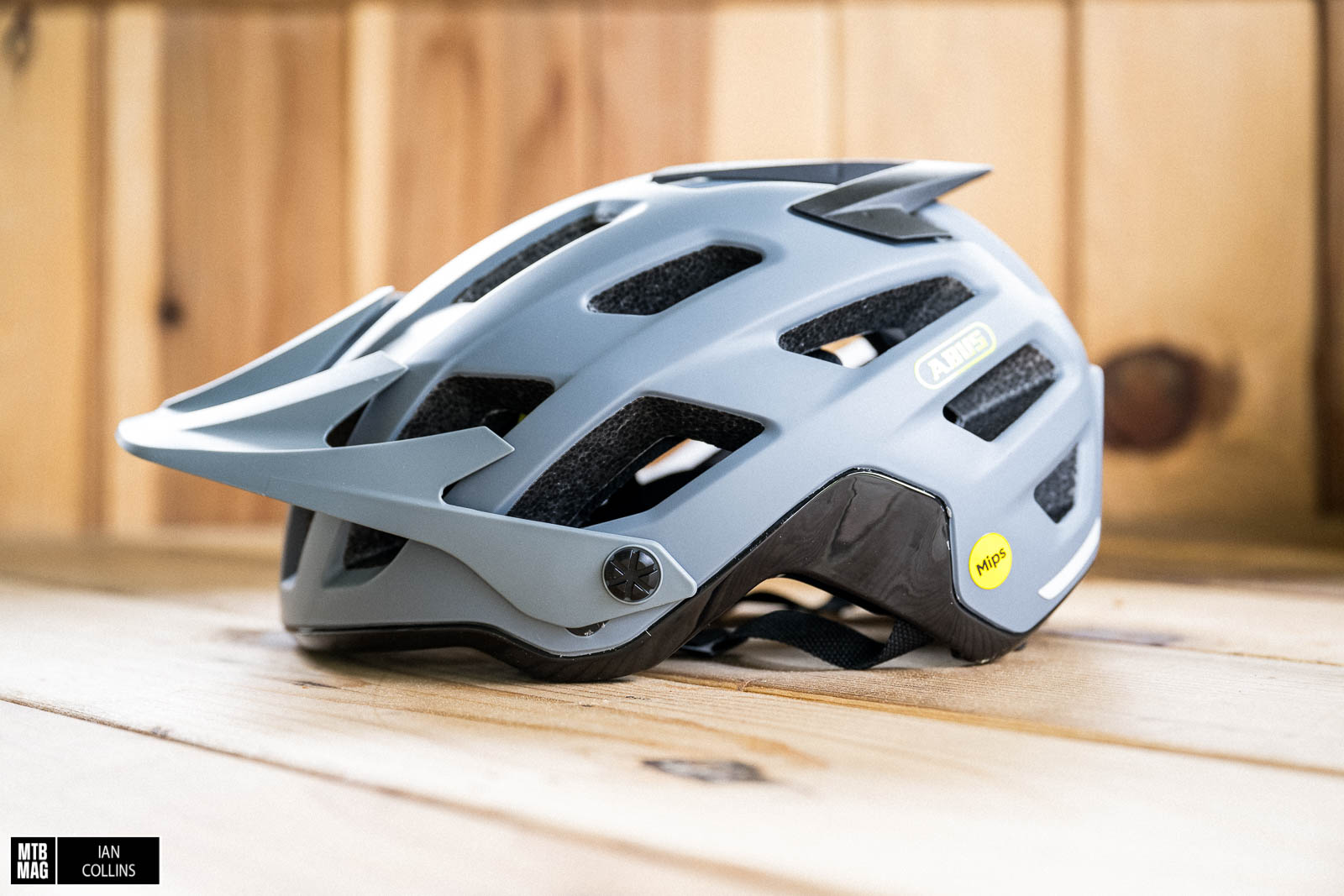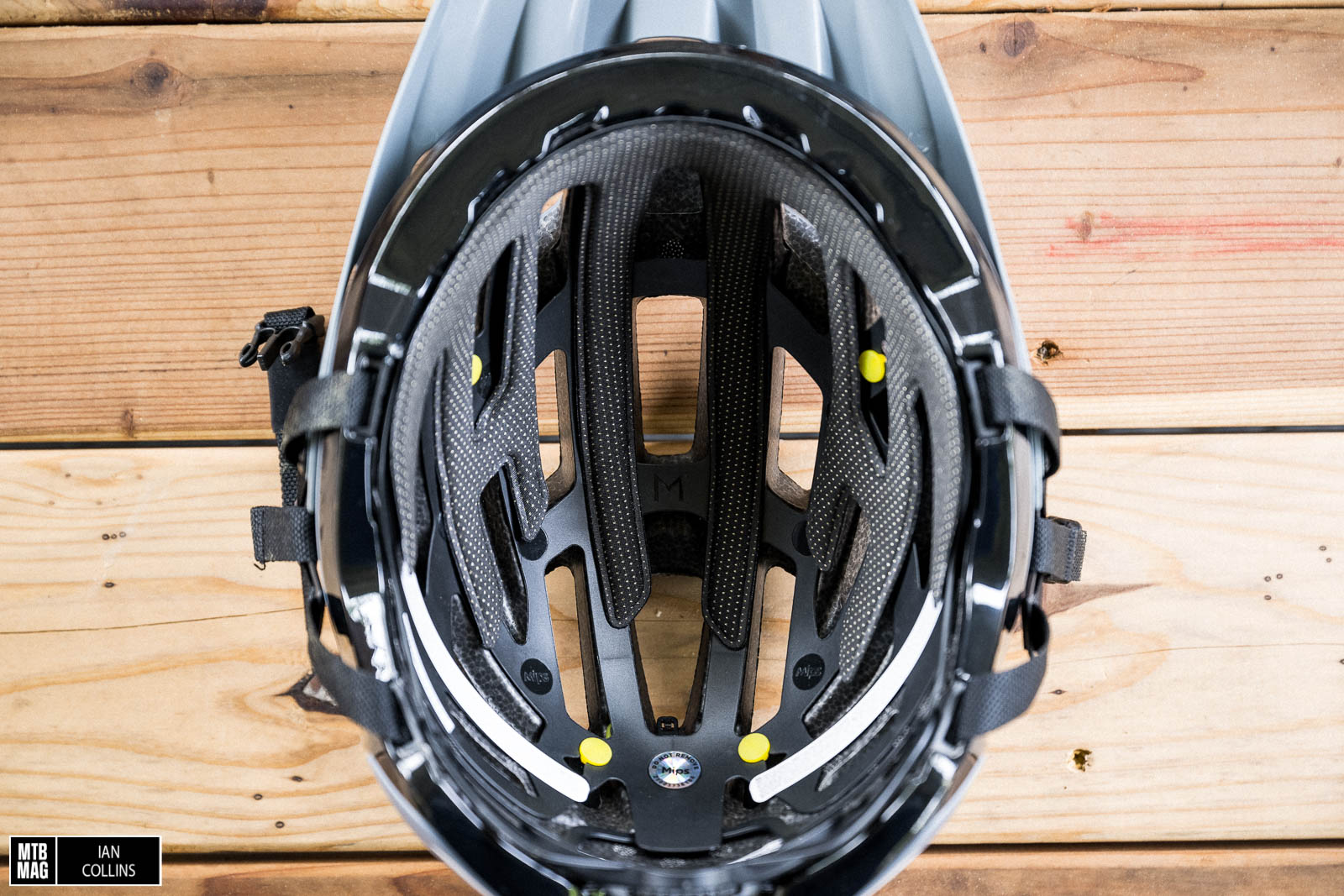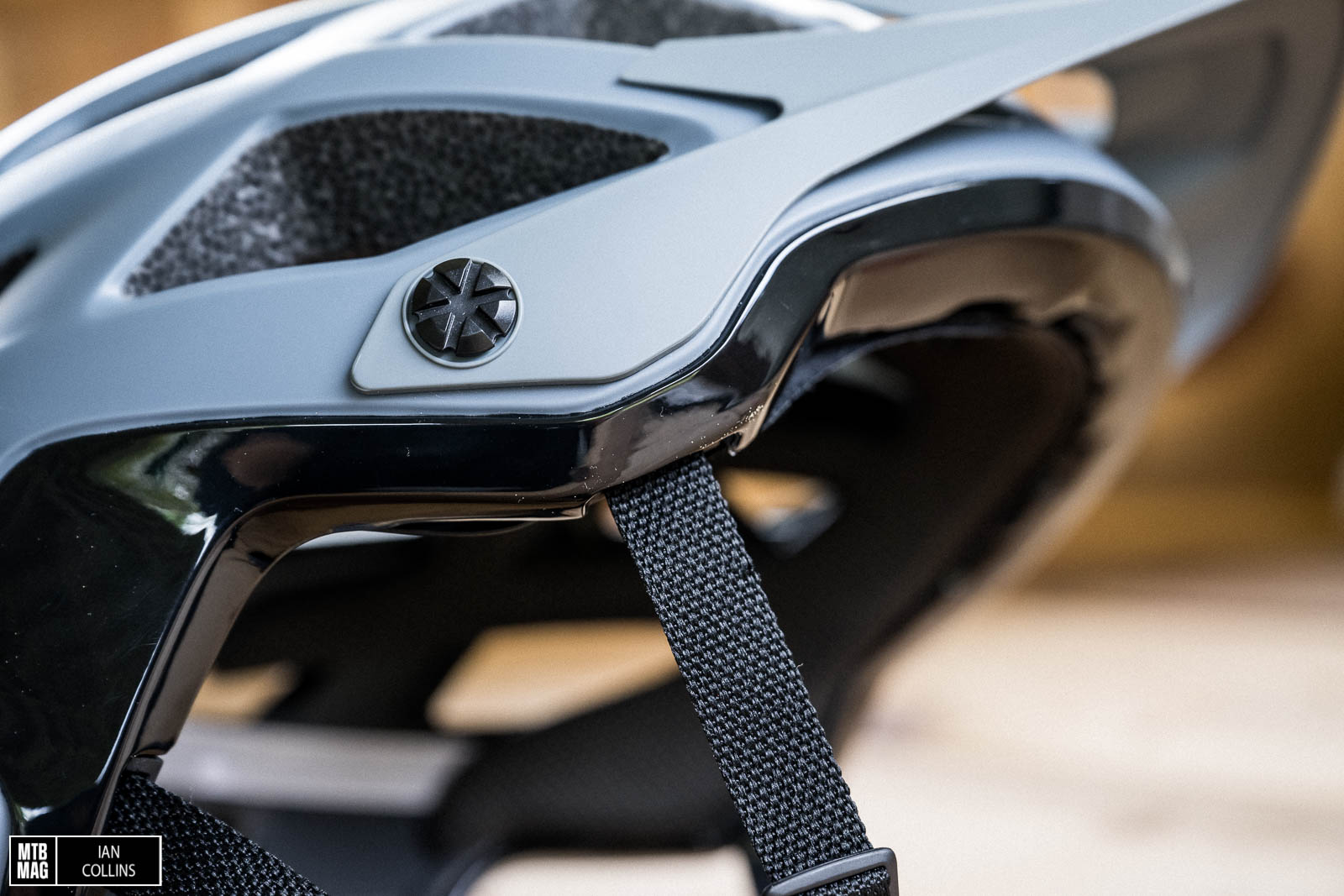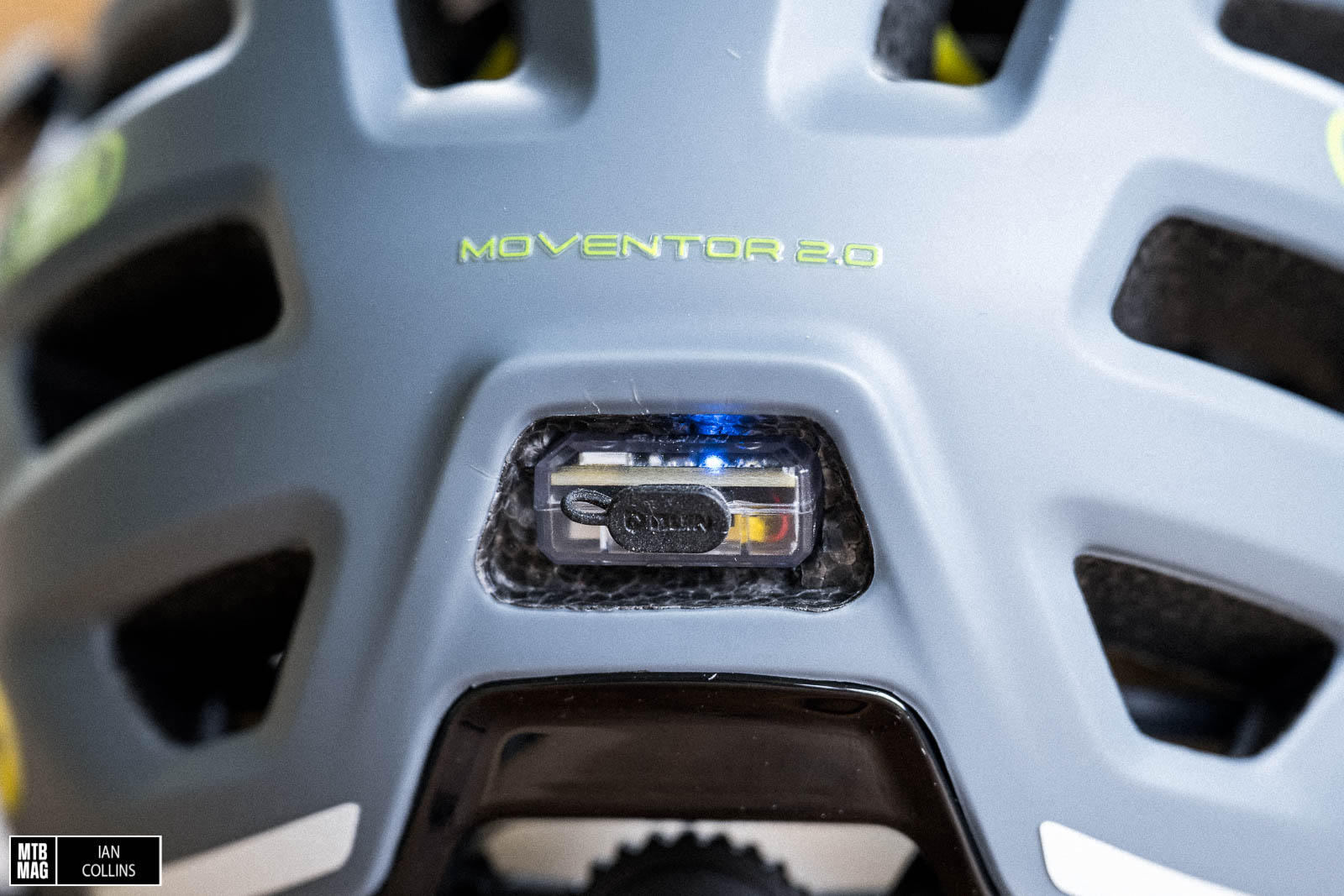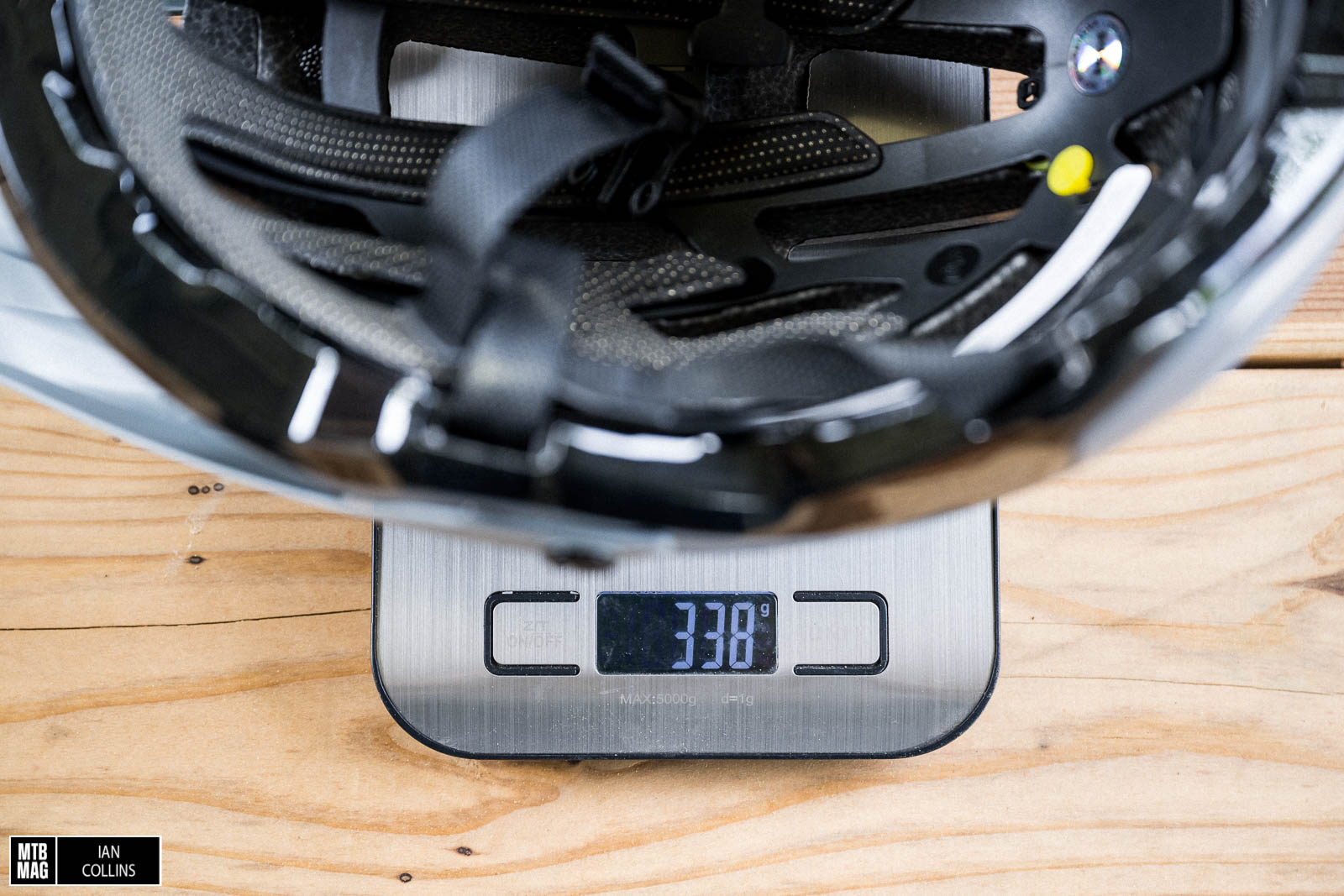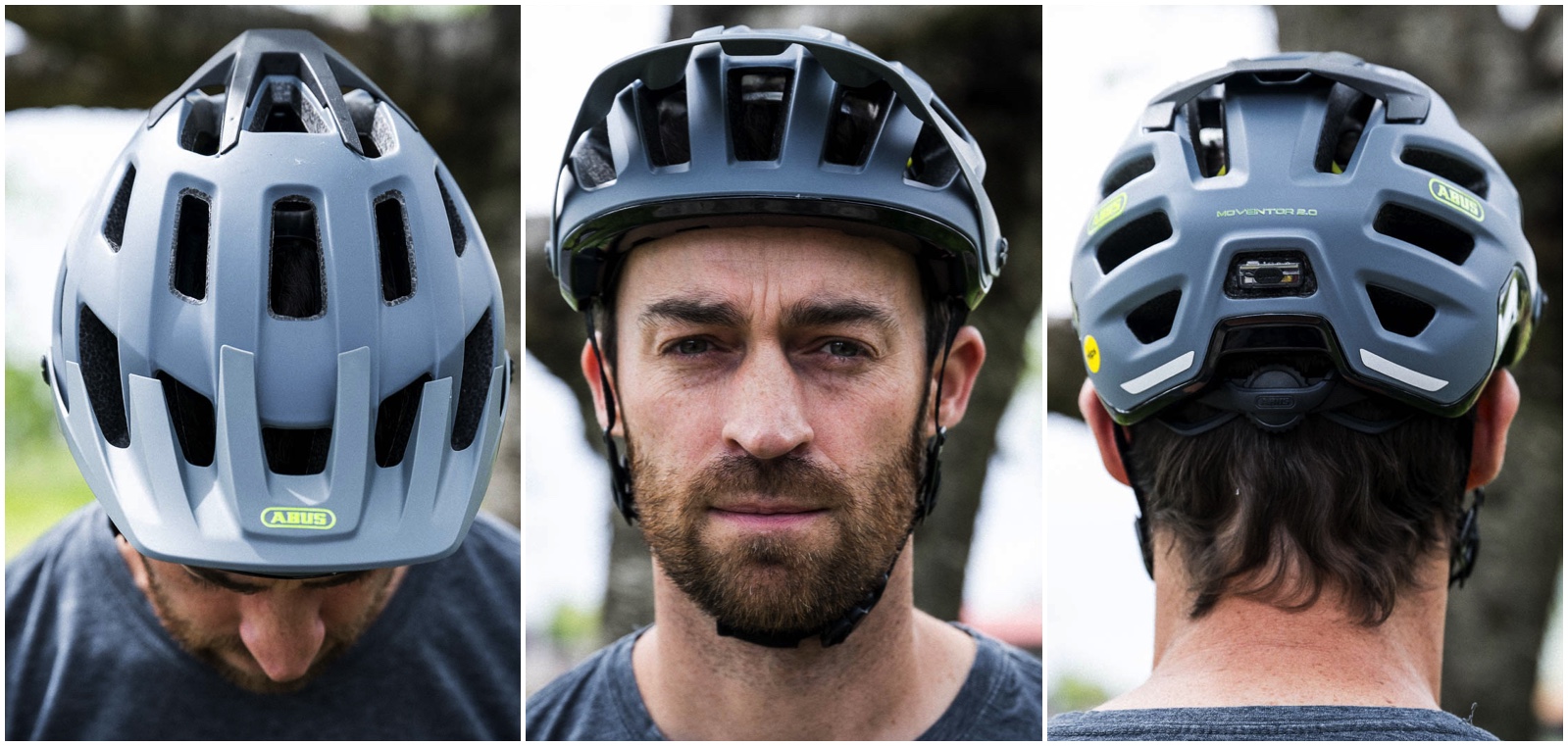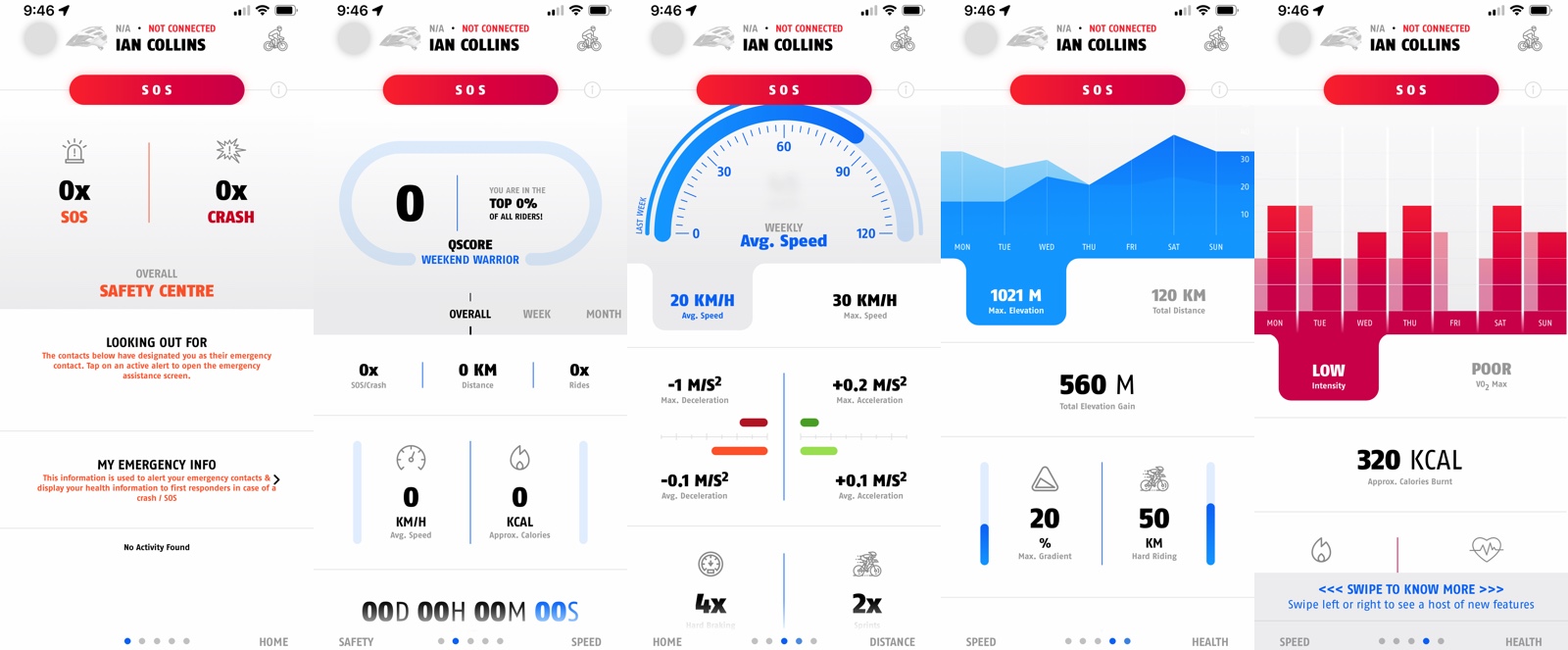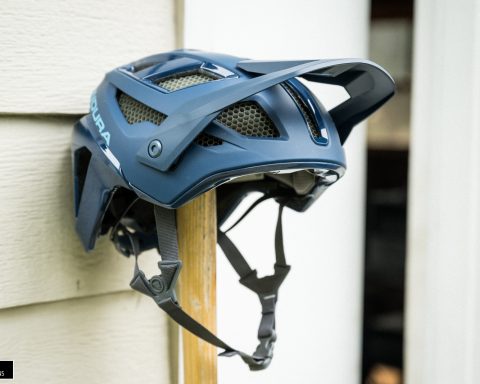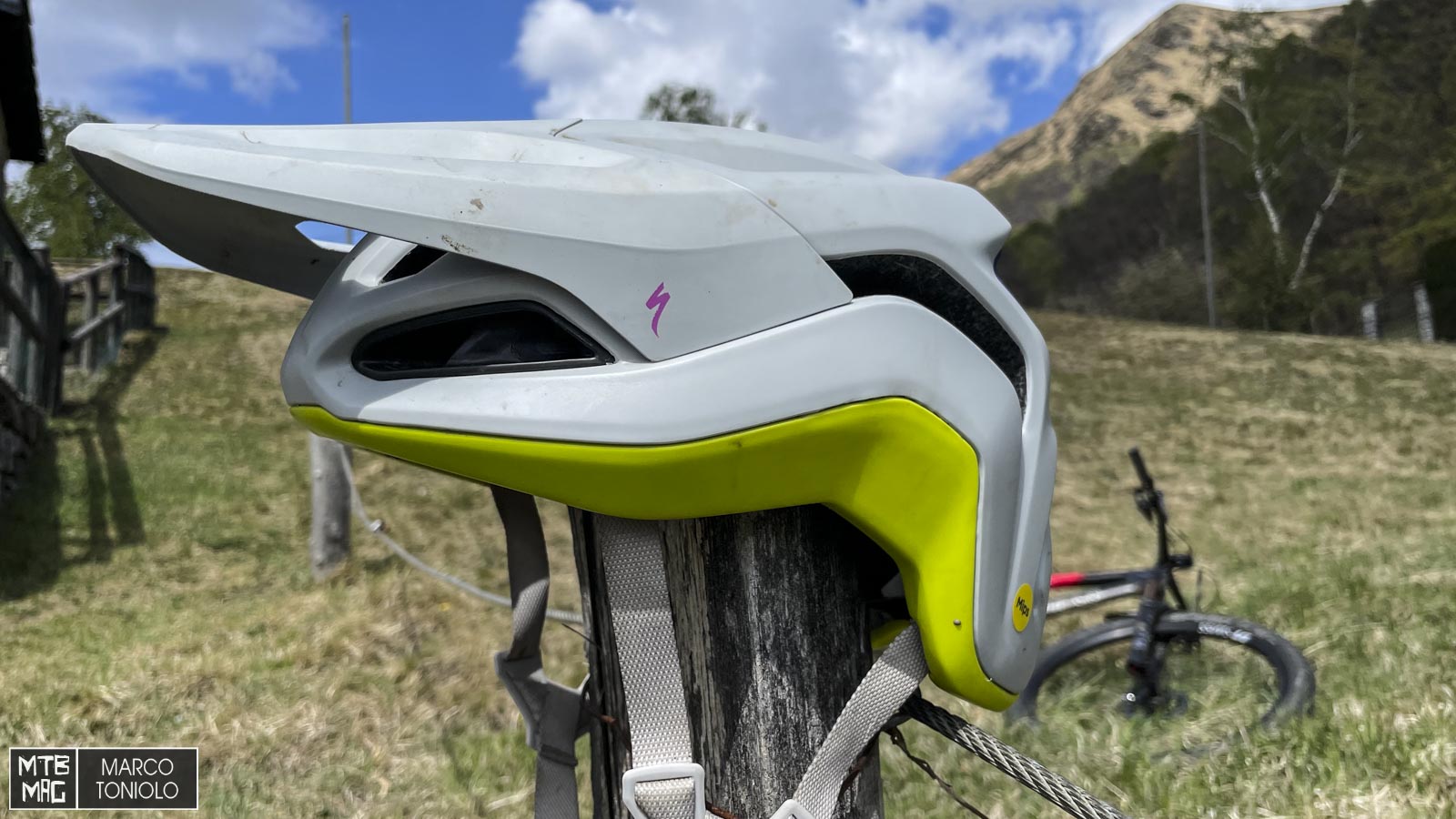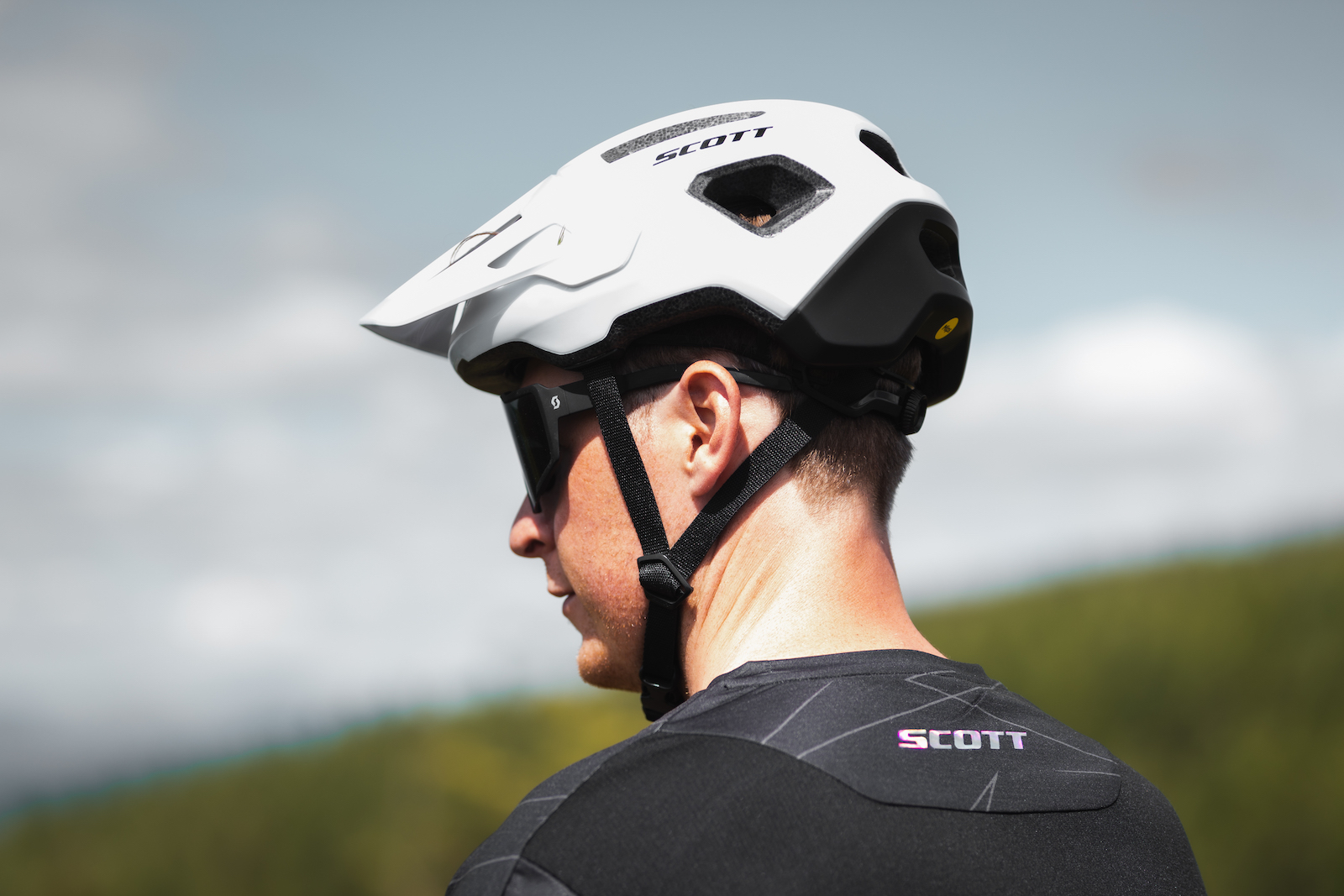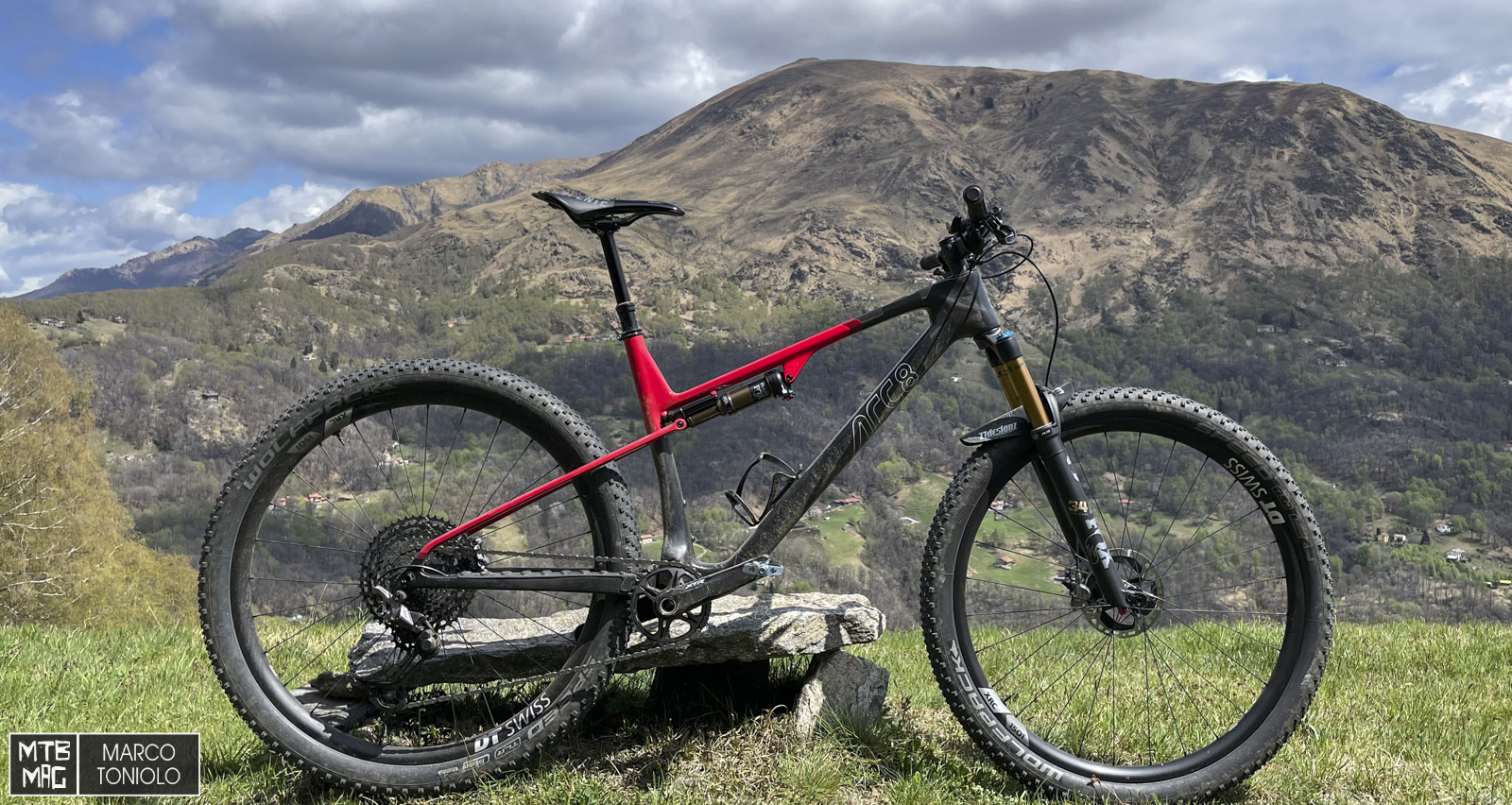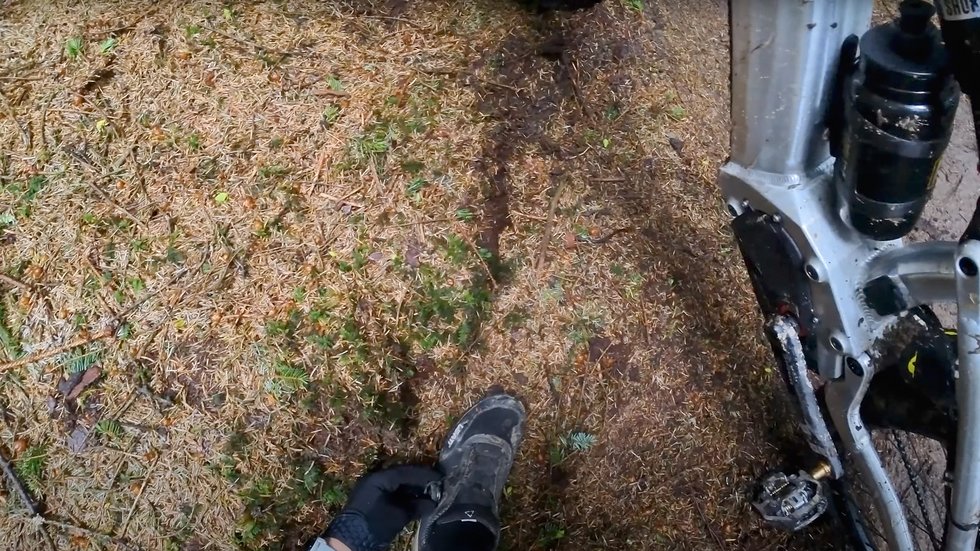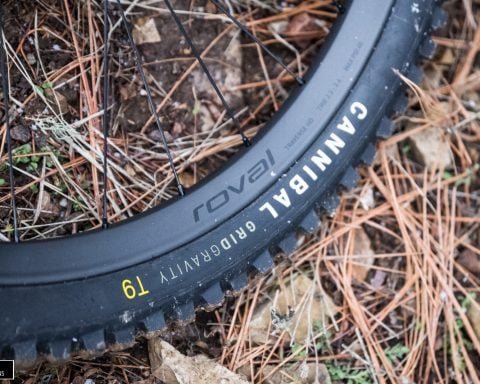ABUS recently passed on a test sample of their latest helmet aimed at the XC/Trail segment – or downcountry if you will (their words, not mine). Landing on the light weight side of things, this version of the Moventor 2.0 features MIPS as well as a Quin crash detection safety device.
Details
- Small, Medium (tested), Large sizing
- 338 grams (our scale, with Quin)
- Grey, Copper or Black
- Height adjustable retention system
- Goggle compatible visor adjustment range
- Mips liner
- 19 Vents
- $169.99 USD
The Moventor 2.0 uses the latest Mips liner for increased safety and protection from rotational impacts. I appreciated that the sweatliner wrapped all the way around the front of the head and back to the ears, uninterrupted. This seems to prevent sweat running down my face.
From top, clockwise: ABUS uses a fairly standard tension wheel retention system as two reflective bands. The system adjusts in height with loads of range, and the wheel itself was easy to operate while riding. As a bonus, it’s also ponytail compatible. The straps anchor into fixed points in the helmet and connect at a 3 way adjustable yoke.
The visor hardware is large and easy to use with a coin. It hasn’t loosened so far and the detents between the visor settings are easy to feel. However, it’s easy for them to be unbalanced side-to-side, which can result in a crooked visor unbeknownst to the rider.
The visor range is huge and thus makes for easy storage of both goggles and glasses.
The Quin system pops into a small port in the back of the helmet. It charges with a small USB cord and has a blinking blue light. You simply move it to wake it up and pair it to your smart phone via the Quin application – more on that in a bit…
With the Quin system installed, my medium weighed an impressively light 338 grams on our scale.
On the trail
Starting with fit, contrary to what ABUS claims on their website, I personally felt that the helmet seemed to sit every so slightly high on my head. Helmets are a very personal thing and some riders prefer specific brands due to fit for very good reasons. It is worth mentioning that I did feel a little bit of pressure on the corners of my forehead in this particular helmet, but it wasn’t enough to distract me. Now, with that in mind I do think the coverage is quite good and I am used to helmets that are tilted more toward the AM/Enduro segment. Given that the Moventor 2.0 is aimed toward “downcountry” in ABUS’s words, I think the level of protection is really good. I felt that the MIPS system and the sweat liner were both very comfortable and didn’t make any noise, which is a bonus.
The three way anchors on the straps were in the perfect position for me from the get go. For the sake of testing, I played with them and it is rather arduous to make adjustments, but part of that is due to the fact that the yokes keep a snug bite on the straps so that they don’t shift around. On trail, I found the Moventor 2.0 to do a standout job and keeping the air flowing on warmer days while also managing sweat well as I never got it in my eyes or on my glasses. The straps and retention systems are comfortable, easy to operate and thus the helmet was an afterthought as it never jostled around in rough sections. All in all, despite not having any big slams in this helmet, I can report that it’s cool, comfortable and confidence inspiring given its intended duty.
Quin
I wanted to take a quick moment to talk about Quin. It is functionally similar to the ANGI system system that Specialized used in their helmets. In short, you download an app, register and input up to 3 emergency contacts who would be reached in the event of a bad crash.
The Quin device itself is quite small – only a couple inches wide and maybe in inch tall. The key features are all called out above.
Interestingly, Quin has an app that goes far beyond basic crash detection. The screengrabs above are from the 5 different pages that the application displays on your smartphone. You can use the app to log your mileage, speed, altitude and output should you choose. Personally, with apps like Strava I couldn’t really see myself using this in addition, nor could I see myself using it in lieu of Strava, but some riders may see the appeal.
Overall
All in all, I found the Moventor 2.0 to be a lightweight, comfortable and safe feeling helmet. It ventilates very well and has loads of adjustability at the visor and in its retention system. It achieves its goal of being a solid offering for the “downcountry” segment where riders might want a bit more protection than a standard XC lid offers, without having to bump up to an enduro half shell. As far as value is concerned, at $169.99, it’s not an absolute steal but with features like Mips and Quin, one could easily expect it to cost substantially more than that these days.

